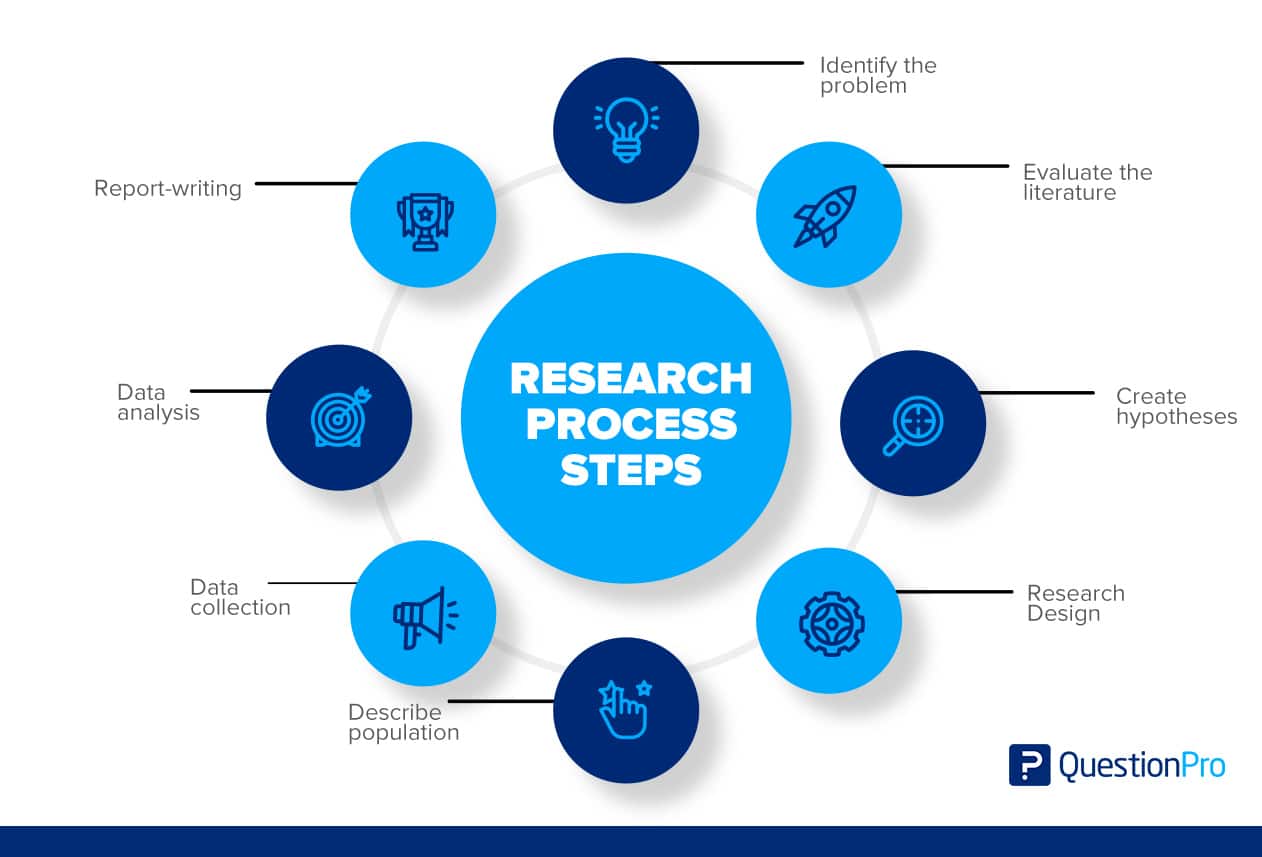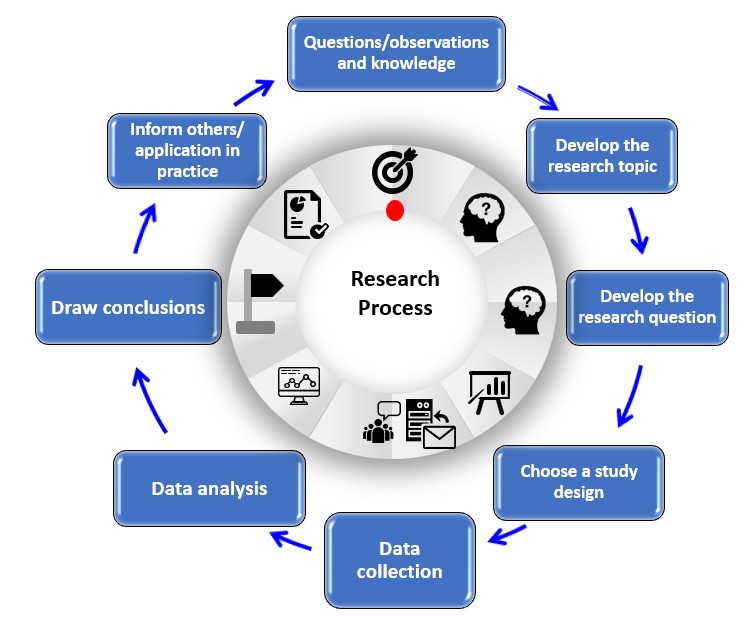Have you ever wondered what it truly means to do research when you are speaking Spanish? It's almost as if the simple act of looking things up or studying something takes on a richer, more textured meaning when you consider the language. For anyone curious about the Spanish-speaking world, whether you are a student, a curious mind, or someone working across different cultures, grasping the nuances of `research in spanish` is pretty important, you know?
This idea of digging deep for knowledge, or what we call `research in spanish`, goes far beyond just translating a word. It's about understanding how people in Spanish-speaking places approach discovery, how they gather facts, and how they share what they find. It involves a whole way of thinking, and that, is that, something we can really get into today.
Today, we're going to explore the core of what `research in spanish` really means. We'll look at the main words used, how they pop up in different situations, and why knowing all this can really open up new doors for you. It's about getting a feel for the language and its role in uncovering truths, which is, in a way, quite fascinating.
Table of Contents
- The Heart of Research in Spanish: `Investigación`
- Why Research in Spanish Matters for You
- Practical Tips for Engaging in Research in Spanish
- Frequently Asked Questions About Research in Spanish
- A Look Ahead at Research in Spanish
The Heart of Research in Spanish: `Investigación`
When you want to talk about `research in spanish`, the word you'll hear most often, and the one that truly captures the idea, is `investigación`. This word, which is a feminine, singular noun, covers a lot of ground, you know? It's not just a simple translation; it carries a deep sense of methodical exploration and discovery.
The term `investigación` really comes into play in a whole bunch of situations. For instance, a scientist might be doing an `investigación` in a lab, trying to figure out how something works. Or, say, the police might be carrying out an `investigación` to look into a suspect's background. It's very versatile, more or less.
The verb form, `investigar`, means "to research" or "to investigate." So, you might say, "El científico está realizando una investigación" (The scientist is doing a research project), or "La policía investigará el historial del sospechoso" (The police will research the suspect's record). It shows how this core idea of looking into things is used across many parts of life, which is, actually, quite neat.
`Investigación` in Action: Everyday and Academic Use
`Investigación` shows up everywhere, from casual conversations to really serious academic work. In the world of learning, it's a key idea used in so many different areas. You'll find it in scientific studies, like when someone is trying to understand a new disease, or in the social sciences, where people might be looking at human behavior. It's even there in the humanities, when scholars are exploring history or literature, you know?
For example, "investigaciones f) research is necessary to the advancement of science" really shows how central this concept is to progress. Without this kind of careful looking into things, new knowledge just wouldn't happen. It's a fundamental process, and that, is that, something we can all agree on.
When you hear about a "well researched book," in Spanish, it would be "un libro bien investigado." This implies a thorough job of gathering facts and information. It's about making sure the information is solid, which is, honestly, a big part of what good research is all about, right?
Beyond `Investigación`: Other Words for Inquiry
While `investigación` is the main player for `research in spanish`, there are other words that also carry a similar sense of looking into things or studying. One common one is `estudio`. While `estudio` often means "study" in the sense of learning a subject or a specific piece of work, it can sometimes be used interchangeably with `investigación`, especially in academic settings, you know?
Think about it: you might say "un estudio sobre el clima" (a study on the climate), which could involve a lot of research. The difference is subtle; `investigación` often implies a more formal, systematic, and often original inquiry, while `estudio` can be broader, including just learning about something already known. It's a little bit like the difference between doing original research and just studying for an exam, in a way.
Other words that come close include `indagación` (inquiry), `averiguación` (investigation, often for facts or truth), and even `legwork` (though this is more about the effort involved). These terms show the rich variety of ways Spanish speakers talk about the process of seeking knowledge, which is, very, very interesting.
Why Research in Spanish Matters for You
Understanding `research in spanish` is not just about translating words; it's about opening up new avenues for discovery and connection. If you're someone who loves learning, or someone who needs to find information, knowing these terms and their contexts can really make a difference. It's pretty much about broadening your horizons, anyway.
Today, with so much information out there, being able to access content in different languages is a huge plus. Spanish is spoken by millions of people worldwide, and a vast amount of knowledge, history, and current events is discussed and documented in Spanish. So, being able to engage with `research in spanish` means you get to tap into a whole new world of insights, you know?
It's also about respect and accuracy. When you're trying to understand something deeply, using the right terms shows that you care about the subject and the people involved. It helps you avoid misunderstandings and build stronger connections, which is, basically, always a good thing.
Connecting with Spanish-Speaking Communities
When you grasp the specifics of `research in spanish`, you can connect more genuinely with Spanish-speaking academics, professionals, and everyday people. Imagine trying to discuss a scientific breakthrough or a historical event with someone, and you can use their precise terms for how they "investigate" or "study" things. That really builds bridges, you know?
It helps you understand their perspectives, their methods, and their findings without getting lost in translation. This is especially true in fields like medicine, environmental science, or social justice, where local context and language are very, very important. It's about being part of the conversation, which is, sort of, what we all want.
Furthermore, if you're ever doing work that involves Spanish-speaking populations or cultures, having a solid grasp of how `research in spanish` is done and talked about is absolutely key. It allows for more respectful and effective collaboration, ensuring that your work is relevant and well-received. It's, like, a fundamental part of working together, really.
Uncovering New Perspectives
Every language carries its own way of seeing the world, and Spanish is no different. By engaging with `research in spanish`, you get to uncover ideas and viewpoints that might not be as common or even present in English-language materials. This can be incredibly enriching, you know?
For instance, a historical `investigación` written in Spanish about a Latin American event might offer insights and interpretations that differ significantly from an English account. This isn't about one being right or wrong, but about gaining a fuller, more nuanced picture. It's, in a way, like looking at the same scene through different lenses.
This exposure to diverse perspectives helps you think more broadly and critically about any subject. It helps you challenge your own assumptions and develop a richer, more complete understanding of complex topics. So, getting into `research in spanish` is not just about language; it's about expanding your mind, which is, honestly, a pretty great outcome.
Practical Tips for Engaging in Research in Spanish
So, how can you actually start doing or understanding `research in spanish` more effectively? It's not as hard as it might seem, and with a few practical steps, you can really boost your abilities. It's just a matter of getting started, you know?
The key is to approach it systematically, much like you would approach any research project. Start small, build your foundational knowledge, and then gradually take on more complex tasks. It's about steady progress, and that, is that, something we can all work towards.
Remember, the goal is to become comfortable with the language and its specific uses in the context of inquiry. It takes a little bit of effort, but the rewards are definitely worth it, you know? You'll find yourself able to engage with a whole new world of information, which is, really, quite exciting.
Building Your Vocabulary
To truly get a handle on `research in spanish`, you'll want to build up your specific vocabulary. Beyond `investigación` and `investigar`, learn related terms. For instance, knowing `datos` (data), `fuente` (source), `análisis` (analysis), `hallazgos` (findings), and `conclusiones` (conclusions) will be incredibly helpful, you know?
A good way to do this is to read articles or papers on topics you already know a bit about, but in Spanish. Look for academic journals, news reports on scientific discoveries, or even police reports if that's your interest. This way, you're seeing the words in their natural habitat, which is, basically, the best way to learn.
You can also use online dictionaries that provide example sentences, like the one mentioned in "My text" ("See 3 authoritative translations of research in spanish with example sentences, conjugations and audio pronunciations."). Hearing the audio pronunciations can also help you get a feel for how these words sound when spoken by a native speaker. This really helps with understanding and speaking, which is, honestly, a big deal.
Finding Reliable Sources
Just like in any language, finding trustworthy sources is super important when you're doing `research in spanish`. Look for academic institutions, reputable news organizations, and official government websites in Spanish-speaking countries. These are often good starting points for solid information, you know?
University websites in Spain, Mexico, Argentina, or Colombia, for example, will often have research papers and publications available. Look for terms like "publicaciones," "repositorio," or "biblioteca digital." These are places where you'll find serious academic work, which is, actually, what you want for good research.
Also, don't forget about international organizations that publish in Spanish. The United Nations, the World Health Organization, or various regional bodies often have extensive reports and data available in Spanish. They are generally very reliable, and that, is that, something you can count on.
Communicating Your Findings
Once you've done your `research in spanish`, you might want to share what you've found. This means practicing how to present your ideas clearly and accurately in Spanish. Whether it's writing a summary, giving a presentation, or just discussing your findings, using the right vocabulary and sentence structures is key, you know?
Focus on using precise language, especially when talking about methods, results, and implications. Practice explaining complex ideas in simpler terms first, and then build up to more detailed explanations. This helps ensure your message is understood, which is, obviously, the whole point of communicating.
Consider joining online language exchange groups or academic forums where you can practice discussing research topics in Spanish. Getting feedback from native speakers can be incredibly valuable for refining your communication skills. It's, like, a really good way to improve, honestly.
Frequently Asked Questions About Research in Spanish
What is the main Spanish word for "research"?
The primary and most common Spanish word for "research" is `investigación`. It's a feminine, singular noun, and it covers a wide range of formal and informal inquiries. This is the word you will hear and use most often when talking about the act of looking into something deeply, you know?
How is `investigación` used in different fields?
`Investigación` is used across many different areas. For instance, in science, it refers to scientific studies, like "investigación científica." In law enforcement, it means an investigation, such as "investigación policial." It's also central to academic fields like social sciences and humanities, where scholars conduct "investigación académica." It's very adaptable, you know?
Is `estudio` the same as `investigación`?
While `estudio` (study) and `investigación` (research) are related and sometimes used in similar contexts, they are not always exactly the same. `Investigación` typically implies a more formal, systematic, and often original inquiry aimed at discovering new knowledge. `Estudio` can be broader, referring to learning about a subject or a specific piece of work, whether it involves original discovery or just learning existing information. So, they're similar, but there's a slight difference in focus, in a way.
A Look Ahead at Research in Spanish
Understanding `research in spanish` is a skill that keeps giving back. As of today, , the need for clear communication and accurate information across languages is more important than ever. The ability to engage with `investigación` and related terms in Spanish allows you to tap into a vast ocean of knowledge and connect with a huge part of the global community, you know?
Whether you're looking to deepen your language skills, expand your academic pursuits, or simply satisfy your curiosity, embracing the world of `research in spanish` is a truly rewarding endeavor. It's about building bridges, gaining new insights, and becoming a more informed global citizen. You can learn more about Spanish language nuances on our site, and also check out this page for authoritative Spanish definitions and usage.
So, keep exploring, keep learning, and keep asking questions. The journey of `research in spanish` is an ongoing adventure, and there's always something new to discover. It's, like, a never-ending story of learning, which is, honestly, pretty cool.
Related Resources:



Detail Author:
- Name : Esperanza Hauck
- Username : elyse06
- Email : felipe.labadie@gmail.com
- Birthdate : 1989-05-13
- Address : 55309 Gutkowski Islands Rohanmouth, OH 10419-7136
- Phone : +14806702919
- Company : Spinka and Sons
- Job : Landscaper
- Bio : Vitae doloremque eaque qui id voluptatem. Error placeat dignissimos reiciendis. Saepe veritatis animi dignissimos voluptatem doloribus et aut. Dicta facere nihil et magni soluta.
Socials
twitter:
- url : https://twitter.com/loyce.graham
- username : loyce.graham
- bio : Animi et accusamus eius rerum. Neque quisquam harum voluptas rem inventore aut totam. Rem numquam perferendis dolorum qui.
- followers : 231
- following : 1683
tiktok:
- url : https://tiktok.com/@loycegraham
- username : loycegraham
- bio : Voluptas qui velit et veniam cupiditate et adipisci autem.
- followers : 2222
- following : 2890
instagram:
- url : https://instagram.com/loycegraham
- username : loycegraham
- bio : Ut velit nisi impedit sapiente. Reiciendis rerum qui sit voluptatum est eaque quisquam dolorum.
- followers : 2919
- following : 712
facebook:
- url : https://facebook.com/loyce.graham
- username : loyce.graham
- bio : Quasi enim perspiciatis distinctio ut est iure laudantium voluptas.
- followers : 4252
- following : 2260